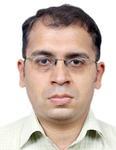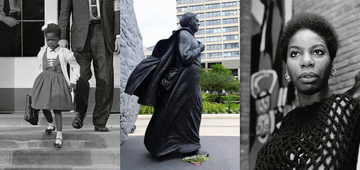- 10 April 2025

This month we feature Dr. Kunaal Dhingra MDS, FRSPH, MFDS RCPS, MFDS RCS, MDTFEd, MAMS, a Dental Specialist who is Additional Professor in the dental centre at the All India Institute of Medical Sciences (AIIMS), New Delhi, India.
Can you tell us what your role is and where you work?
I am currently working as an Additional Professor at the Division of Periodontics, Centre for Dental Education and Research, AIIMS.
Besides being a member of Advanced Centre for Clinical Trial at AIIMS, I am a Member of Cochrane India Network, Cochrane Oral Health, Guidelines International Network, IADR Kulzer Travel Award Committee, Task and Finish Group of European Association of Dental Public Health, Expert Advisory Network of The Royal College of Surgeons of England, Policy Network of The Royal College of Physicians and Surgeons of Glasgow and the International Telecommunication Union/WHO Focus Group on “Artificial Intelligence for Health” (FG-AI4H).
I also serve as Academic Editor on several journals and Guest Editor of Nanomaterials and Nanotechnology and Composites and Advanced Materials journals.
What has been your career path?
I graduated as a dentist in 2006, followed by postgraduation in Periodontics in 2010. I have served on the faculty of various dental institutions since 2011 before my current role at AIIMS.
As a Dental Specialist, I have gained Fellowship, Mastership in Implant Prosthetics and Diplomate status in International Congress of Oral Implantologists (USA), Fellowship of World Academy of Ultrasonic Piezoelectric Bone Surgery, Korea, Fellowship of Pierre Fauchard Academy (India Section), Membership (MDTFEd) of Faculty of Dental Trainers of the Royal College of Surgeons of Edinburgh, Membership MFDS RCPS (Glasg) of Faculty of Dental Surgery of the Royal College of Physicians and Surgeons of Glasgow, Membership MFDS RCS (Eng) of Faculty of Dental Surgery of the Royal College of Surgeons of England, Membership (MAMS) of National Academy of Medical Sciences (India).
Due to my significant contributions in dental public health, I applied and was accepted this year for Fellowship (FRSPH) of the Royal Society for Public Health.
What is your favourite part of your role?
As a faculty member, I enjoy being part of the team to formulate guidelines and information, education, and communication (IEC) materials for oral health care and research. Patient care and postgraduate education are the other roles that I enjoy. Multidisciplinary collaborative dental research is another aspect that gives professional satisfaction and joy.
In your role, how do you support and improve the public’s health and wellbeing?
I work with the Ministry of Health and Family Welfare (MoHFW), the Government of India, and the WHO South-East Asia to formulate IEC materials for oral health care.
I am also involved in developing the guidelines with WHO South-East Asia for oral care of COVID-19 infected patients under home isolation or hospitalisation. COVID-19 positive patients under home isolation should have personal oral hygiene products that include a new soft toothbrush, toothpaste, and a mouthwash/gargle that should be discarded after the condition is improved. The aim of good oral hygiene for hospitalised adults and children with COVID-19 infection (who are non-ventilated, ventilated, and those having step down or end of life care) is to maintain oral cleanliness, prevent additional infection and reduce the likelihood of developing bacterial pneumonia. Improper oral care may influence the prolonged duration of viral shedding after clinical recovery in patients with COVID-19. Non-infectious viral nucleic acid may accumulate in an uncleaned oral cavity and may continue to be detected by PCR, which could lead to prolonged hospital stays. Toothbrushing and gargling can help in physically eliminating viral nucleic acid load.
In addition, I am part of the team which conducts annual oral health camps for the region. We also train the state nodal health officers for oral health awareness and care. The National Oral Health Policy components are designed and updated by our team in collaboration with the MoHFW.
What area(s) of public health are you the most passionate about?
My prime area of interest is dental public health, primarily related to periodontal disease and oral hygiene. Numerous oral care guidelines and IEC materials are designed and disseminated on World Oral Health Day each year at our centre. Together with studying epidemiology and systemic effects of periodontal diseases, tobacco cessation constitutes the areas of public health that I work on. In the ongoing pandemic, I am involved in continuously updating guidelines for oral care of COVID-19 infected patients under home isolation or hospitalisation.
What do you enjoy about being an RSPH member?
Having recently joined the RSPH has given me peer recognition for my continued efforts for dental public health. Being a Fellow of RSPH, one of the oldest public health organisations globally, gives me a unique opportunity to interact with the global peers and pioneers in public health at RSPH. This can go a long way to establish a worldwide network to advance public health in general and dental public health in particular. In today’s testing times of the COVID-19 pandemic, we need a further collaboration of public health professionals worldwide to tide over the pandemic.
What do you do to take care of your own health and wellbeing?
I walk daily and cycle on weekends to take of my physical health. Meditation and spirituality take care of my mental health and peace.



